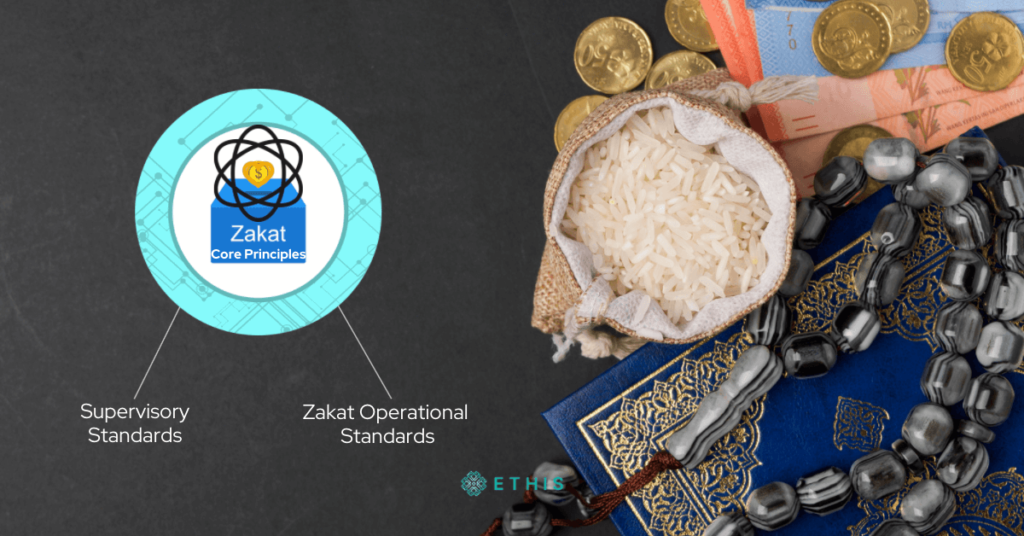
By Hanan Hussain
Performing to the best of one’s ability and results-based evaluation is embedded in the Islamic way of life. This is why the Holy Quran teaches us to pray: “O Allah, our lord give us goodness in this world and goodness in the hereafter”. Thus we seek good results in all things.
Islam deals with things that benefit individuals, society and the environment. Both the concepts of Itqan and Ihsan are important pillars in managing our affairs. These Islamic principles reinforce and enhance quality and performance in management. Itqan is a quality-related term used by the prophet ﷺ to denote continually improving performance by the parties of any task, duty or function.
To achieve Itqan, the Quran tells us: “It is the nature of Allah to perfect everything” (Al Naml- V-88) and advises us to follow the best standards when it says: “And follow the best of what has been revealed to you from your God” [Al Zumar-V-55].
In the hadith, the Prophet ﷺ has stated: “Verily Allah has prescribed Ihsan (Proficiency, Perfection) in all things” [Hadith Nawawi, hadith 17].
In modern management, result-based management and outcome mapping are widely used tools to achieve productivity. Everything is measured through Key Performance Indicators (KPI). But we are far behind in developing and implementing these kinds of modern management tools in our projects and programs.
Against this backdrop, we have to look at zakat management, its theory, systems and performance to face the modern complex environment. There are so many stakeholders in the zakat administration. It has evolved in many stages. Maintaining public trust is the biggest challenge in zakat management. Bringing positive outcomes and analysing the impact upon society is another task.
As Dr Zainulbahar Noor, M.Ec, Secretary-General of the World Zakat Forum stated in his message for the release of the World Zakat Performance Index; “Ensuring the good performance of zakat institutions has become a crucial issue in Zakat management as it has a significant impact on both the public’s trust in and their perception of Zakat institutions.”
This is because managing the zakat fund is not only related to collection and distribution but also includes the hardest part, which is to manage the perception of communities. To overcome this challenge, we have to strive for the development and implementation of performance indicators.
The objectives of zakat are purification of wealth and individuals, growth and empowerment of society and re-distribution of wealth for the betterment of society. As per the Maqasid al-Shariah (Objectives of the Shariah), the Islamic system emphasises mutual care among people. The Quran and the Hadith repeatedly stress that Muslims and all human beings care for others. Especially emphasised is care for underprivileged and vulnerable persons such as orphans, poor, sick, weak, young, elders and even animals and the environment.
As an economic stimulus package, zakat is an open and transparent Islamic social finance tool. Zakat managers must consider these points:
- What do zakat payers (Muzakki) expect from the zakat management?
- Are they satisfied when they pay zakat?
- Do they know the activities of zakat institutions?
- What are the outcomes?
This means we have to take more action to demonstrate the impact of zakat in the society we serve. We have to move beyond our traditional approaches. Therefore the integrity of zakat institutions begins from good governance, effective and efficient performance, Shariah compliance and public trust.
Related: What is Zakat and Why do Muslims do it?
Zakat potential
As per a study of the Islamic Research and Training Institute (IRTI) of the Islamic Development Bank (IsDB), the global potential of zakat collection stands at approximately US$50 billion to the US$600 billion annually, whilst the total amount of zakat funds collected is around the US$10 billion to the US$15 billion per year. Therefore there is a vast gap between the potential amount and the total amount actually being collected. (WZF report on WZPI).
Evolution of zakat standardization


Use of modern management sciences and technological advancements to improve the effective and efficient management of the zakat system is the need of the times. At present each Muslim country has its own system and procedures. Zakat management systems in Muslim minority communities are different from Muslim majority countries. It is difficult to identify uniform systems. There are many challenges in the field of zakat management.
In search of a better process, The Islamic Research and Training Institute of the Islamic Development Bank collaborated with the Central Bank of Indonesia to develop a unified framework for zakat management in 2014.
As a result of this initiative, BAZNAS and Central Bank of Indonesia along with IRTI of Islamic Development Bank produced a comprehensive zakat document, namely, the Zakat Core Principles (ZCP) in 2017. The document aimed to provide minimum standards for Zakat institutions. It is a basis for managing zakat funds based on Shariah laws and ideal practices in zakat management.
Related: The Impact of Zakat in Muslim Society


The Zakat Core Principles consist of 18 standards which are categorised into two main aspects as Supervisory Standards and Zakat Operational Standards.



1 ) Zakat Supervisory Standards have 7 dimensions.
| Supervisory Standards | |
| ZCP 1 | Objectives, Independence and Powers |
| ZCP 2 | Permissible activities |
| ZCP 3 | Licensing criteria |
| ZCP 4 | Supervisory approach |
| ZCP 5 | Supervisory Techniques and Tools |
| ZCP 6 | Supervisory Reporting |
| ZCP 7 | Corrective and Sanctioning power of Zakat supervisor |
2) Zakat operational standards have 11 dimensions.
| Zakat Operational Standards | |
| ZCP 8 | Good Aamil Governance |
| ZCP 9 | Collection Management |
| ZCP 10 | Distribution Management |
| ZCP 11 | Country and Transfer Risk |
| ZCP 12 | Reputation Risk and Lack of Confidence |
| ZCP 13 | Allocation Risk |
| ZCP 14 | Operational and Shariah Compliant Risk |
| ZCP 15 | Sharia Control and Internal Audit |
| ZCP 16 | Financial Reporting and External Audit |
| ZCP 17 | Disclosure and Transparency |
| ZCP 18 | Abuse of Zakat Services |
Both Malaysia and Indonesia are at the forefront of global Islamic social finance and have implemented their national indexes to improve the quality of zakat management.
Zakat Performance Index – Malaysia – 2015
This performance index was developed by Malaysian researchers in 2015. It is implemented via Selangor Zakat Institution and Negari Sembilan Zakat Institution. This experiment continuously monitored for improvements. In this index, the following variables under four dimensions have been taken for analysis.
| Dimensions | Variables | |
| 1 | Inputs | Criteria of recipientQualified staffManagement |
| 2 | Process | Staff (Monitoring of programs and work process)Management |
| 3 | Output | Types of programsTypes of distribution (productive and non-productive)Distribution ratio |
| 4 | Outcome | Number of Asnaf upgradedLevel of public confidenceGovernanceTransparency |
BAZNAS National Zakat Index – Indonesia – 2017
This index was developed by BAZNAS, the Zakat Regulator in Indonesia. BAZNAS has been consistently measuring the performance of more than 500 Zakat institutions in Indonesia since 2017. In this index, many variables are taken for analysis under five dimensions.
| Dimensions | Variables | |
| 1 | Regulation | The existence of zakat law and regulations |
| 2 | Government budget support | Government budget allocation to support the operation of zakat Institutions |
| 3 | Zakat database | Availability of the database of zakat institutionsAvailability of zakat payer databaseAvailability of Mushthahik (Beneficiary) database |
| 4 | Zakat management | Collection, management, disbursement and reporting |
| 5 | Zakat impact | CIBEST Welfare IndexThe Modified Human Development IndexThe Musthahik’s independence |
BAZNAS Shariah Compliant Index – 2020
In 2020, BAZNAS introduced another conceptual framework. That is BAZNAS Shariah Compliant Index. It is a national experiment and it has four dimensions and several variables.
| Dimensions | Variables | |
| 1 | Zakat management | Sharia policiesSharia supervisionAamil or staff code of conductTransparency practices |
| 2 | Zakat collection | Zakat campaignZakat objectsZakat bank accounts |
| 3 | Zakat disbursement | Asnaf criteriaZakat distribution durationZakat distribution mechanismZakat allocation for Aamil/Staff |
| 4 | Regulation | Institutional compliance with regulations |
World Zakat Performance Index (WZPI) – 2021
A cycle of tireless research, implementation and experiment have been invested in improving the quality of zakat management. It requires strong deliberation and continuous commitments. After much effort, another milestone was reached as World Zakat Performance Index (WZPI) launched in September 2021. It was developed considering all previous indices.
The World Zakat Performance Index (WZPI) is a scientific measurement tool developed by the Research and Development Unit of the World Zakat Forum in collaboration with the BAZNAS Centre for Strategic Studies. The WZPI is capable of identifying the performance levels of zakat supervision and internal management based on five dimensions and nineteen variables.
It was reported during the launch that WZPI is a tool that enables a comprehensive assessment of the performance of zakat administration at both the macro (country) and micro (zakat institutions) levels in the World Zakat Forum member countries. (WZF report on WZPI)
| Dimensions | Variables | |
| 1 | Legal framework | Presence of legal frameworkPermissible activities regulationLicensing criteria |
| 2 | Zakat supervision | Supervisory approachSupervisory techniques and toolsSupervisory reporting |
| 3 | Zakat reporting | Audited financial statementsFinancial disclosureAnnual report |
| 4 | Zakat collection | Collection mechanismCollection growthRisk management in the collectionZakat literacyMuzakki database |
| 5 | Zakat disbursement | Disbursement mechanismAllocation to collection ratioZakat impact assessment reportRisk management on disbursementMustahik database |
The advantages of the World Zakat Performance Index implementation are as follows:
- It will build confidence and strengthen trust in zakat institutions among zakat payers.
- It will improve the effective and efficient management of zakat institutions.
- It will guide the implementation of best practices and new ideas in the field of zakat management.
- It will improve the organisational culture, management styles and operational procedures of zakat institutions.
- Monitoring and evaluation will be very easy.
- Measuring the Social Impact of zakat will be easy.
- It will provide a basis for a Zakat database, research and development.
Let us hope for a better implementation of performance-based zakat management around the Muslim world, which will do all of us a world of good.
Read more on Is Bitcoin Investment Halal?





Top Posts
Islamic P2P Crowdfunding Explained
Halal Money Matters: How Muslims Can Balance Deen and Dunya with Smart Islamic Finance
Halal Investments for Singapore Muslims? It’s time for a shake-up in the Islamic Investments scene.
Smart investment for making Halal money
3 Reasons Why Property Crowdfunding is the Smart Investment for You